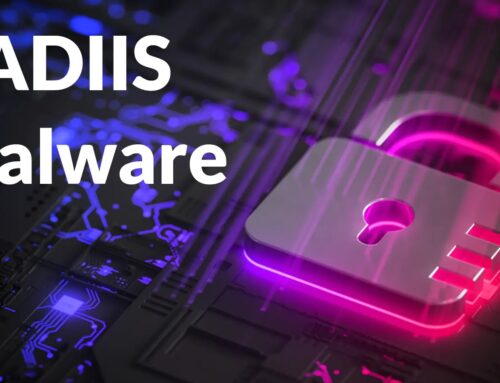
Kenyan Filmmakers Installed With FlexiSPY Spyware That Monitors Messages and Social Media
The digital realm, while connecting us globally, simultaneously presents unprecedented avenues for surveillance and intrusion. A recent unsettling incident involving Kenyan filmmakers and the sophisticated FlexiSPY spyware serves as a stark reminder of these ever-present threats. This case not only highlights the advanced capabilities of commercial spyware but also underscores the critical importance of digital vigilance, especially for individuals in sensitive professions.
The FlexiSPY Incident: A Breach of Trust and Privacy
Recent forensic analysis by the University of Toronto’s Citizen Lab has brought to light a disturbing incident of digital surveillance. Four Kenyan filmmakers, whose identities remain undisclosed for their protection, allegedly became targets of highly intrusive surveillance. According to the investigation, FlexiSPY spyware was covertly installed on their devices on or around May 21, 2025. This breach reportedly occurred while the filmmakers were in police custody, following their arrest in connection with allegations surrounding the BBC. The seizure of their devices during this time provided an opportune window for the malicious installation.
What is FlexiSPY Spyware?
FlexiSPY is a commercially available surveillance software, often marketed as a tool for parental control or employee monitoring. However, its powerful capabilities make it a potent instrument for illicit espionage. Once installed on a target device, FlexiSPY grants its operator extensive access and control. Its features typically include:
- Message Monitoring: Interception and logging of SMS, MMS, and messages from popular instant messaging applications (e.g., WhatsApp, Telegram, Signal).
- Social Media Spying: Monitoring of activity across various social media platforms (e.g., Facebook, Instagram, Twitter).
- Call Interception: Recording of phone calls and access to call logs.
- Location Tracking: Real-time GPS tracking of the device.
- Microphone and Camera Activation: Covert activation of the device’s microphone and camera for live eavesdropping and environmental recording.
- Keylogging: Recording of all keystrokes entered on the device.
- File Access: Remote access to files, photos, and videos stored on the device.
The clandestine nature of FlexiSPY, coupled with its broad surveillance capabilities, makes it a significant threat to personal privacy and digital security. Its deployment, particularly in cases involving government agencies or law enforcement without proper legal oversight, raises serious ethical and human rights concerns.
The Implications for Activists and Journalists
This incident sends a chilling message to journalists, filmmakers, activists, and anyone involved in sensitive or investigative work. The ability of such sophisticated spyware to be installed during periods of detention or device seizure highlights a critical vulnerability. The information gleaned from these compromised devices – personal communications, contacts, work-related data, and even real-time location – can be used for tracking, intimidation, legal maneuvering, or to undermine ongoing investigations or projects. It underscores the urgent need for heightened digital security awareness and robust protective measures among these groups.
Remediation Actions and Protective Measures Against Spyware
Protecting against sophisticated spyware like FlexiSPY requires a multi-layered approach. While complete immunity is challenging, these actions can significantly reduce risk:
- Device Hardening: Keep your operating system and all applications updated to the latest versions. Software updates frequently patch vulnerabilities that spyware might exploit.
- Strong Passwords and Biometrics: Use unique, complex passwords for all your devices and accounts. Enable biometric authentication (fingerprint, face unlock) where available.
- Physical Security: Never leave your devices unattended, especially in sensitive environments. Be wary of anyone asking to “borrow” your phone or laptop.
- Review App Permissions: Regularly review and revoke unnecessary permissions for applications on your device. Be cautious about granting access to your microphone, camera, contacts, or location, especially to apps that don’t genuinely require them.
- Avoid Unofficial Downloads: Only download applications from official app stores (Google Play Store, Apple App Store). Avoid third-party app stores or direct APK/IPA file downloads, as these are common vectors for malware.
- Use a Reputable Mobile Security Solution: Install and regularly update a trusted mobile antivirus or anti-malware solution. While not foolproof against zero-day exploits, they can detect known spyware signatures.
- Encrypted Communications: Utilize end-to-end encrypted messaging apps (e.g., Signal, WhatsApp with disappearing messages enabled for sensitive conversations). Understand that while the content of messages is encrypted, metadata (who you talk to, when) might still be exposed if the device is compromised.
- Regular Backups: Periodically back up your device data. In case of a suspected compromise, a factory reset might be necessary, and you’ll want to restore your data safely.
- Forensic Analysis Post-Compromise: If you suspect your device has been compromised, seek assistance from digital forensics experts. Tools like those used by Citizen Lab can confirm the presence of spyware and help understand its extent.
Tools for Detection and Mitigation
While prevention is key, certain tools can aid in detecting and mitigating the presence of spyware. Note that no single tool is exhaustive against highly sophisticated threats, but they offer valuable layers of defense.
| Tool Name | Purpose | Link |
|---|---|---|
| Mobile Anti-Malware Solutions (e.g., Malwarebytes, Avast Mobile Security) | General mobile device scanning for known malware and spyware signatures. | Malwarebytes Avast Mobile Security |
| iVerify (for iOS) | A security toolkit designed to detect advanced threats and provide security recommendations for iOS devices. | iVerify.io |
| MVT (Mobile Verification Toolkit) | A forensic tool from Amnesty International to detect Pegasus and other sophisticated spyware on mobile devices. Requires technical expertise. | GitHub MVT Project |
| Disabling USB Debugging and Developer Options | While not a tool, ensuring these are off on Android devices prevents unauthorized software installation via USB. | (Standard Android Settings) |
Conclusion
The case of the Kenyan filmmakers is a poignant reminder of the escalating cyber threats in an interconnected world. Commercial spyware, once confined to the shadows, is now a prominent concern for individuals across various sectors. As cybersecurity professionals, it’s our responsibility to understand these threats, advocate for stronger digital rights, and empower users with the knowledge and tools to protect themselves. The battle for digital privacy is ongoing, and vigilance remains our most potent defense.





